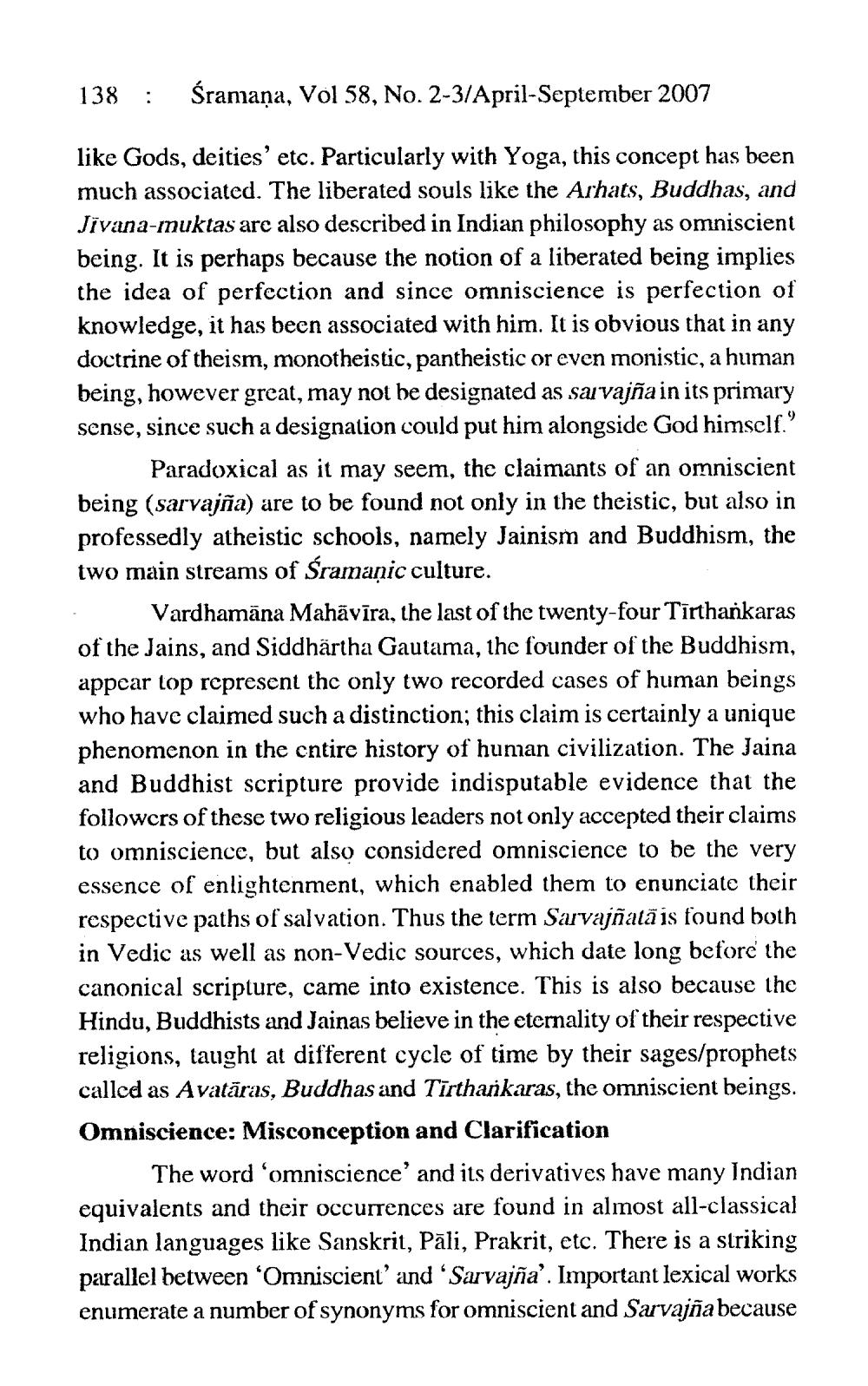________________
Śramaṇa, Vol 58, No. 2-3/April-September 2007
like Gods, deities' etc. Particularly with Yoga, this concept has been much associated. The liberated souls like the Arhats, Buddhas, and Jivana-muktas are also described in Indian philosophy as omniscient being. It is perhaps because the notion of a liberated being implies the idea of perfection and since omniscience is perfection of knowledge, it has been associated with him. It is obvious that in any doctrine of theism, monotheistic, pantheistic or even monistic, a human being, however great, may not be designated as sarvajña in its primary sense, since such a designation could put him alongside God himself."
138 :
Paradoxical as it may seem, the claimants of an omniscient being (sarvajña) are to be found not only in the theistic, but also in professedly atheistic schools, namely Jainism and Buddhism, the two main streams of Śramanic culture.
Vardhamana Mahāvīra, the last of the twenty-four Tirthankaras of the Jains, and Siddhartha Gautama, the founder of the Buddhism, appear top represent the only two recorded cases of human beings who have claimed such a distinction; this claim is certainly a unique phenomenon in the entire history of human civilization. The Jaina and Buddhist scripture provide indisputable evidence that the followers of these two religious leaders not only accepted their claims to omniscience, but also considered omniscience to be the very essence of enlightenment, which enabled them to enunciate their respective paths of salvation. Thus the term Sarvajñata is found both in Vedic as well as non-Vedic sources, which date long before the canonical scripture, came into existence. This is also because the Hindu, Buddhists and Jainas believe in the eternality of their respective religions, taught at different cycle of time by their sages/prophets called as Avataras, Buddhas and Tīrthankaras, the omniscient beings. Omniscience: Misconception and Clarification
The word 'omniscience' and its derivatives have many Indian equivalents and their occurrences are found in almost all-classical Indian languages like Sanskrit, Pāli, Prakrit, etc. There is a striking parallel between 'Omniscient' and 'Sarvajña'. Important lexical works enumerate a number of synonyms for omniscient and Sarvajña because




